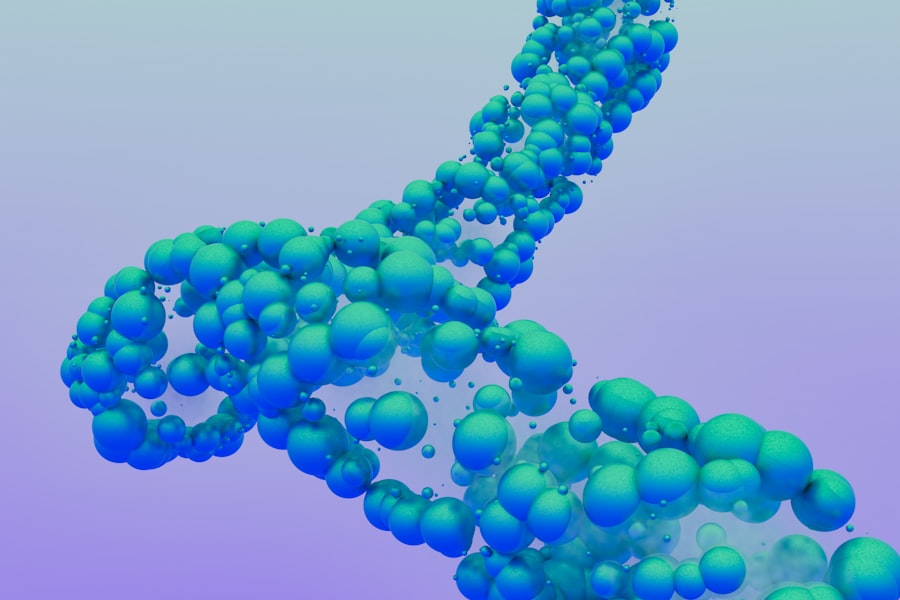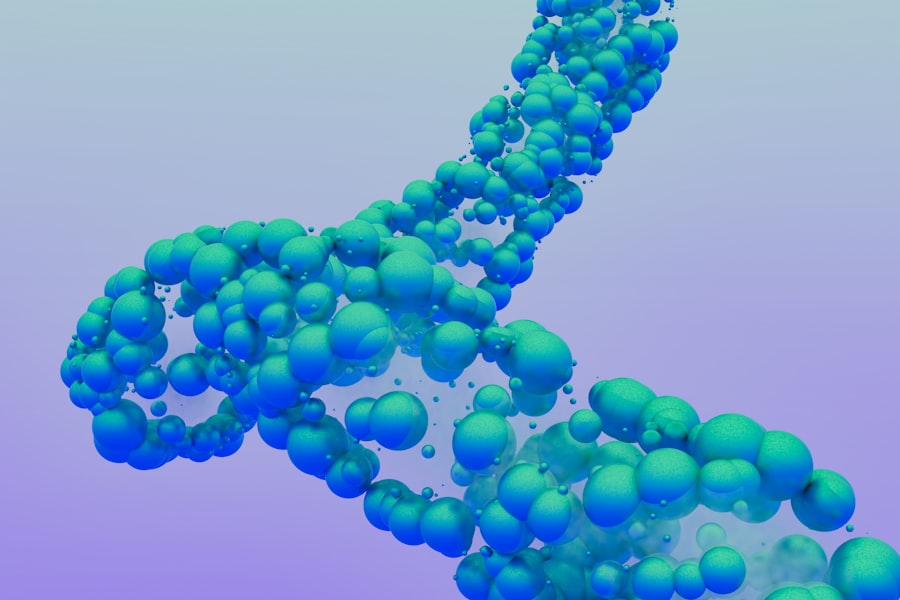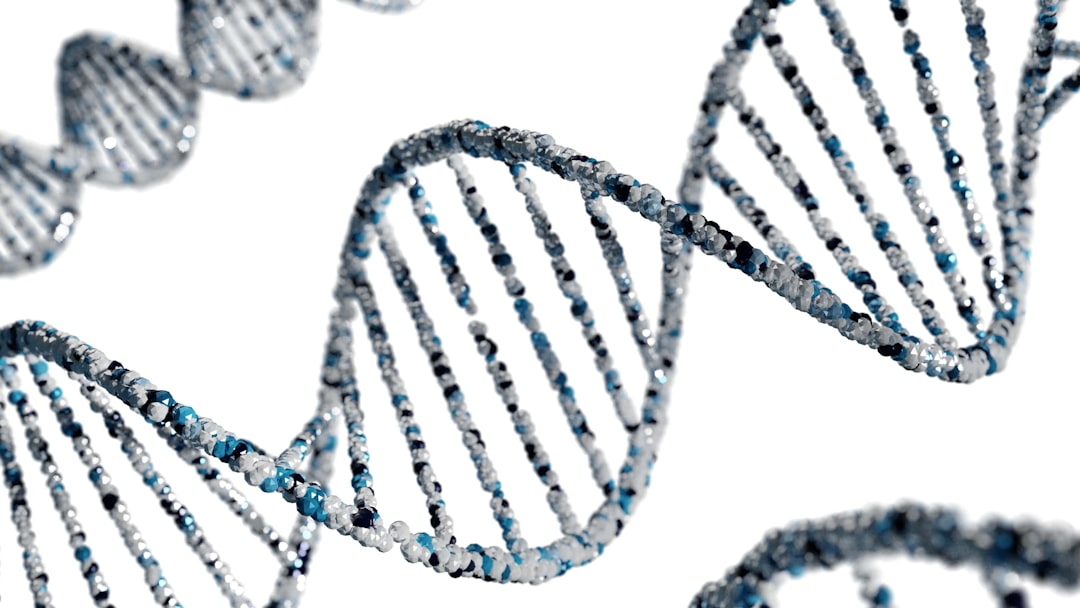In recent decades, the field of genetic manipulation has experienced unprecedented growth, driven by advancements in biotechnology and a deeper understanding of genetics. This surge has enabled scientists to alter the genetic makeup of organisms with remarkable precision, leading to innovations in agriculture, medicine, and various other sectors. Techniques such as CRISPR-Cas9 have revolutionized the ability to edit genes, allowing for targeted modifications that were once thought to be the realm of science fiction.
As a result, genetic manipulation has become a powerful tool for addressing some of the most pressing challenges facing humanity, including food security, disease prevention, and environmental sustainability. The rise of genetic manipulation has not only transformed scientific research but has also sparked a global conversation about its implications. As researchers continue to explore the potential benefits of genetically modified organisms (GMOs), public interest and concern have surged.
The ability to create crops that are resistant to pests or diseases, for instance, holds promise for increasing agricultural yields and reducing reliance on chemical pesticides. Similarly, genetic manipulation in medicine offers the potential for groundbreaking treatments and therapies that could eradicate genetic disorders. However, this rapid advancement has also raised questions about safety, ethics, and the long-term consequences of altering the fundamental building blocks of life.
Key Takeaways
- Genetic manipulation is rapidly advancing across multiple fields including agriculture, medicine, and human reproduction.
- Ethical and environmental concerns are central to debates about the use and regulation of genetic technologies.
- Government regulations play a crucial role in managing the risks and benefits associated with genetic manipulation.
- There is ongoing global resistance and efforts to control or limit genetic manipulation practices in various sectors.
- Public awareness and education are vital in shaping policies and societal responses to genetic manipulation challenges.
The Ethical Concerns Surrounding Genetic Manipulation
The ethical concerns surrounding genetic manipulation are multifaceted and complex. One of the primary issues is the potential for unintended consequences that may arise from altering an organism’s genetic structure. Critics argue that tampering with nature could lead to unforeseen health risks or ecological imbalances.
For instance, the introduction of genetically modified crops into ecosystems may disrupt local flora and fauna, leading to a loss of biodiversity.
Another significant ethical consideration is the question of consent and ownership.
In the realm of human genetic manipulation, issues surrounding consent become particularly pronounced. The ability to edit human embryos raises profound questions about who has the right to make decisions regarding genetic modifications and what criteria should govern such choices. Additionally, there are fears that genetic manipulation could exacerbate social inequalities, as access to advanced medical treatments may be limited to those who can afford them.
This potential for a genetic divide raises ethical dilemmas about equity and justice in healthcare.
The Environmental Impact of Genetic Manipulation

The environmental impact of genetic manipulation is a critical area of concern that warrants careful examination. Proponents argue that genetically modified crops can lead to more sustainable agricultural practices by reducing the need for chemical fertilizers and pesticides. For example, crops engineered to be resistant to pests can decrease the reliance on harmful chemicals that can leach into soil and waterways, thereby promoting a healthier ecosystem.
Additionally, genetically modified organisms can be designed to thrive in challenging environmental conditions, such as drought or salinity, potentially reducing the strain on natural resources. However, critics caution against overlooking the potential negative consequences of introducing genetically modified species into ecosystems. The long-term effects on biodiversity remain uncertain, as altered organisms may outcompete native species or disrupt existing ecological relationships.
Moreover, there is concern that the widespread adoption of genetically modified crops could lead to monocultures, which diminish genetic diversity and increase vulnerability to pests and diseases. As such, while genetic manipulation holds promise for enhancing agricultural productivity, it is essential to consider its potential ramifications on the environment.
The Role of Government Regulations in Genetic Manipulation
| Aspect | Metric/Indicator | Description | Example |
|---|---|---|---|
| Regulatory Framework | Number of Countries with Genetic Manipulation Laws | Count of nations that have established specific laws governing genetic manipulation | Over 70 countries have specific GMO regulations |
| Approval Process | Average Time for Regulatory Approval | Time taken from application submission to approval for genetic modification projects | 6-24 months depending on country |
| Safety Standards | Number of Safety Protocols Enforced | Count of mandatory safety measures required for genetic manipulation research and products | 10+ protocols including containment and risk assessment |
| Ethical Oversight | Existence of Ethical Review Boards | Whether government mandates ethical review for genetic manipulation experiments | Mandatory in EU, USA, Japan |
| Public Transparency | Frequency of Public Consultations | How often governments hold public forums or consultations on genetic manipulation policies | Annual or bi-annual in many countries |
| Enforcement | Number of Regulatory Inspections per Year | Count of inspections conducted to ensure compliance with genetic manipulation laws | Varies; e.g., 50-200 inspections in large countries |
| Penalties | Range of Penalties for Non-Compliance | Types and severity of penalties imposed for violating genetic manipulation regulations | Fines, license revocation, criminal charges |
| Research Funding | Percentage of Government Budget Allocated | Proportion of national research funding dedicated to genetic manipulation studies | 5-15% in biotech-focused countries |
Government regulations play a pivotal role in shaping the landscape of genetic manipulation. Regulatory frameworks are designed to ensure that genetically modified organisms are safe for human consumption and environmentally sustainable. In many countries, regulatory agencies conduct rigorous assessments before approving GMOs for commercial use.
These assessments typically evaluate potential health risks, environmental impacts, and ethical considerations associated with genetic modifications. However, the regulatory landscape varies significantly across different regions, leading to disparities in how GMOs are perceived and managed. In some countries, stringent regulations have been established to govern the use of genetic manipulation in agriculture and medicine.
For instance, the European Union has implemented strict guidelines that require comprehensive testing and labeling of genetically modified products. Conversely, other nations have adopted more lenient approaches, prioritizing innovation and economic growth over precautionary measures. This divergence in regulatory practices raises questions about global standards for genetic manipulation and highlights the need for international cooperation in addressing the challenges posed by this rapidly evolving field.
The Future of Genetic Manipulation Technology
The future of genetic manipulation technology holds immense potential for transforming various sectors, from agriculture to healthcare. As research continues to advance, scientists are exploring innovative applications that could revolutionize how society addresses pressing challenges. For instance, advancements in gene editing techniques may lead to breakthroughs in personalized medicine, allowing for tailored treatments based on an individual’s genetic makeup.
This could significantly improve patient outcomes and reduce healthcare costs by targeting diseases at their source. Moreover, ongoing research into synthetic biology promises to expand the possibilities of genetic manipulation even further. By designing and constructing new biological parts and systems, scientists may be able to create organisms with entirely novel functions.
This could pave the way for sustainable biofuels, biodegradable materials, and even new forms of food production that minimize environmental impact. However, as these technologies evolve, it will be crucial to balance innovation with ethical considerations and public concerns to ensure that advancements benefit society as a whole.
The Battle Against Genetic Manipulation in Agriculture

The battle against genetic manipulation in agriculture is characterized by a complex interplay of public opinion, scientific research, and regulatory frameworks.
Activist groups have mobilized against GMOs, advocating for labeling requirements and promoting organic farming practices as alternatives.
This grassroots movement reflects a growing skepticism toward industrial agriculture and a desire for transparency in food production. In response to public concerns, some agricultural companies have sought to address issues related to transparency and safety by investing in research and development aimed at improving public perception of GMOs. Initiatives focused on educating consumers about the benefits of genetically modified crops have emerged as part of this effort.
However, despite these attempts at dialogue, deep-seated mistrust remains among certain segments of the population. The ongoing battle over genetic manipulation in agriculture underscores the need for continued engagement between scientists, policymakers, and the public to foster informed discussions about the future of food production.
The Battle Against Genetic Manipulation in Medicine
The battle against genetic manipulation in medicine is marked by both excitement over potential breakthroughs and apprehension regarding ethical implications. Gene therapy has emerged as a promising avenue for treating genetic disorders by directly addressing the underlying causes of diseases at a molecular level. However, this innovative approach raises questions about safety and efficacy, particularly when it comes to editing human embryos or germline cells that could affect future generations.
Public opinion on genetic manipulation in medicine is often polarized. While some view it as a revolutionary tool for eradicating hereditary diseases and improving quality of life, others express concerns about “designer babies” and the potential for eugenics-like practices. The ethical dilemmas surrounding gene editing in humans necessitate careful consideration of societal values and norms as advancements continue to unfold.
As researchers navigate this complex landscape, it is essential to engage diverse perspectives to ensure that medical applications of genetic manipulation align with ethical principles.
The Battle Against Genetic Manipulation in Animal Breeding
The battle against genetic manipulation in animal breeding reflects broader societal debates about ethics, welfare, and food production practices. Genetic engineering techniques have been applied to livestock with the aim of enhancing desirable traits such as disease resistance or growth rates. Proponents argue that these advancements can lead to more efficient food production systems while reducing reliance on antibiotics and other interventions.
However, animal welfare advocates raise significant concerns about the implications of genetic manipulation on animal health and well-being. Critics argue that altering an animal’s genetics could lead to unforeseen health issues or suffering due to unintended consequences of gene editing. Additionally, there are ethical questions surrounding the commodification of animals as products rather than sentient beings deserving of care and respect.
As society grapples with these issues, it becomes increasingly important to establish guidelines that prioritize animal welfare while allowing for scientific innovation.
The Battle Against Genetic Manipulation in Human Reproduction
The battle against genetic manipulation in human reproduction is one of the most contentious areas within this field. The advent of technologies such as preimplantation genetic diagnosis (PGD) allows prospective parents to screen embryos for specific genetic conditions before implantation during in vitro fertilization (IVF). While this offers hope for preventing hereditary diseases, it also raises profound ethical questions about reproductive choices and societal implications.
Concerns about “designer babies” loom large in discussions surrounding human reproductive technologies. Critics argue that allowing parents to select traits such as intelligence or physical appearance could lead to a new form of inequality based on genetic advantages. Furthermore, there are fears that such practices could undermine the value placed on diversity within society.
As advancements continue in reproductive technologies, it is crucial for policymakers and ethicists to engage in thoughtful dialogue about the implications of genetic manipulation on future generations.
The Global Efforts to Combat Genetic Manipulation
Global efforts to combat genetic manipulation reflect a growing recognition of its far-reaching implications across borders. International organizations such as the World Health Organization (WHO) and Food and Agriculture Organization (FAO) have initiated discussions aimed at establishing guidelines for responsible research and application of genetic technologies. These efforts seek to promote safety while addressing public concerns about GMOs and gene editing.
Additionally, grassroots movements advocating for transparency in food labeling have gained traction worldwide. Activists emphasize the importance of informed consumer choices regarding genetically modified products while pushing for stricter regulations on their use. Collaborative initiatives between governments, NGOs, scientists, and industry stakeholders are essential for fostering dialogue around best practices in genetic manipulation while ensuring that diverse perspectives are considered.
The Importance of Public Awareness in the Battle Against Genetic Manipulation
Public awareness plays a crucial role in shaping perceptions and policies surrounding genetic manipulation. As scientific advancements continue at a rapid pace, it is essential for individuals to be informed about both the benefits and risks associated with these technologies. Education initiatives aimed at demystifying genetic manipulation can empower consumers to make informed choices regarding their health and food sources.
Moreover, fostering open dialogue between scientists, policymakers, and communities is vital for addressing concerns related to ethical implications and safety standards. Engaging diverse voices in discussions about genetic manipulation can help bridge gaps between scientific knowledge and public understanding while promoting transparency in decision-making processes. Ultimately, an informed public is better equipped to navigate the complexities surrounding genetic manipulation technology as society moves forward into an uncertain yet promising future.
Resistance to genetic manipulation is a significant topic in contemporary discussions about biotechnology and agriculture. For a deeper understanding of the various perspectives surrounding this issue, you can explore the article on genetic engineering and its implications found at this link. This article delves into the ethical, environmental, and health-related concerns that contribute to public resistance against genetic modification, providing a comprehensive overview of the ongoing debates in this field.
WATCH THIS! The Tall Whites Agenda: The Secret War to Genetically Edit Humanity
FAQs
What is resistance to genetic manipulation?
Resistance to genetic manipulation refers to the natural or induced ability of organisms to prevent or counteract changes to their genetic material introduced through genetic engineering techniques.
Why do some organisms show resistance to genetic manipulation?
Organisms may exhibit resistance due to cellular defense mechanisms such as restriction-modification systems, CRISPR-Cas systems, or other molecular pathways that recognize and degrade foreign DNA or prevent its integration.
How does resistance to genetic manipulation affect scientific research?
Resistance can limit the efficiency of genetic engineering, making it challenging to introduce desired genetic changes. This can slow down research progress and require the development of alternative methods or tools.
Are there ways to overcome resistance to genetic manipulation?
Yes, scientists use various strategies such as modifying vectors, using different delivery methods, employing gene-editing tools like CRISPR-Cas9, or temporarily inhibiting cellular defense mechanisms to improve genetic manipulation success.
Is resistance to genetic manipulation the same across all species?
No, the degree and mechanisms of resistance vary widely among species and even among different strains within a species, depending on their evolutionary history and cellular machinery.
Does resistance to genetic manipulation have any natural benefits?
Yes, it serves as a protective mechanism against foreign genetic elements like viruses and plasmids, helping maintain genomic integrity and stability in natural environments.
Can resistance to genetic manipulation impact gene therapy?
Yes, resistance mechanisms in human cells or target tissues can reduce the efficiency of gene therapy by preventing the delivery or expression of therapeutic genes, posing challenges for clinical applications.
Is resistance to genetic manipulation a concern in agriculture?
Yes, resistance in crop plants or pests can affect the success of genetically modified organisms (GMOs) designed for improved traits, necessitating ongoing research to address these challenges.
